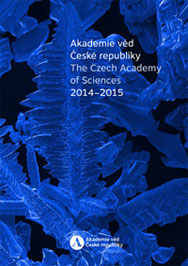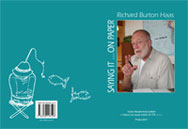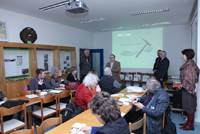Can Parasitology Ride the Rising Star of Disease Ecology?
With a shared focus on host–pathogen relationships, parasitology and disease ecology seem to have a lot in common. But parasitology lacks the eye-catching—and wallet-opening—emphasis on known diseases. By working more closely with disease ecologists, could parasitologists gain more support for work crucial to predicting and controlling infectious diseases? The authors of an article published in the current issue of The Journal of Parasitology believe they can. The researchers studied the increasing popularity of disease ecology, looking at publications, research funding, jobs, and undergraduate courses. The findings of the study suggested that disease ecology could help improve teaching, encourage collaboration, increase funding, and recruit more students to parasitology.
Disease ecology intertwines with disciplines such as microbiology to ask how hosts and
disease-causing organisms interact and are affected by environment, evolution, and other factors.
Parasitologists are often asking the same questions, but they typically study pathogens and hosts
that are not as clearly linked to known diseases.
The authors argue that better integration of disease ecology and parasitology is critical to
the future success of both fields. In the article, the authors focus on two topics that could
benefit combining the two areas of study: how pathogens affect the life history of hosts and how
disease caused by multiple species can be managed effectively. The authors also outlined several
parasite-related topics that are currently being studied by disease ecologists and could benefit
from collaboration between the two disciplines.
“Because the fields of parasitology and disease ecology have many common interests and
complementary approaches, and enhanced integration is increasingly critical for the prediction and
control of infectious diseases, we hope that we have illustrated the possible benefits and
opportunities that could result from greater cooperation and interaction between these currently
relatively separate areas,” said Janet Koprivnikar, an author from this study.
The authors conclude that educators and researchers need to communicate more openly, not only
with one another but also with students and trainees. After all, it’s always best when scientific
discoveries are broadly shared, as the work could greatly benefit from the input of researchers in
other fields.
The Journal of Parasitology is
the official journal of the American Society of Parasitologists (ASP). The journal reports on
all aspects of animal and human parasites and is widely recognized for publishing content that has
a long-term impact on the field of parasitology. The journal is intended for all with interests in
basic or applied aspects of general, veterinary, medical parasitology, and epidemiology. For more
information about the journal or society, see
http://www.journalofparasitology.org.
















